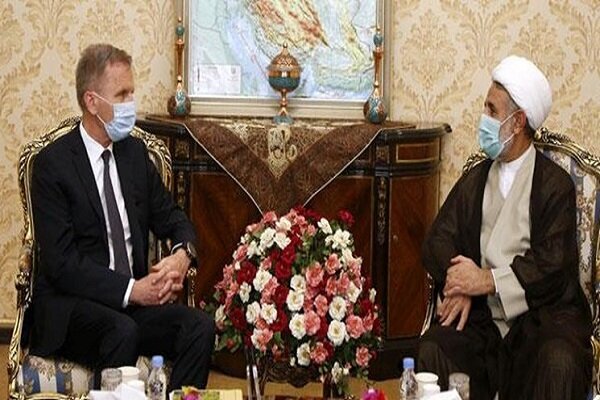Europe failed to meet Iran’s JCPOA expectations, says senior MP

TEHRAN — A top Iranian legislator said on Tuesday that Europe has not met Iran’s expectations in salvaging the Joint Comprehensive Plan of Action (JCPOA), commonly known as the Iran nuclear agreement.
“The Islamic Republic of Iran has fulfilled all its obligations in accordance with Barjam (Persian acronym for the JCPOA), but the other side, while several years have passed, has evaded its duties,” Mojtaba said Zonnour, who chairs the Parliament’s National Security and Foreign Policy Committee.
“Therefore, the unilateral continuation of the obligations [by Iran] is not acceptable,” he added.
Zonnour made the remarks in a meeting with Hans-Udo Muzel, the German ambassador to Tehran.
The JCPOA was signed between Iran, six world powers - the U.S., the UK, France, Russia, China, Germany - and the European Union in July 2015. The pact was ditched by U.S. President Donald Trump in 2018 in pursuit of a “maximum pressure” campaign against Iran.
Trump’s withdrawal came while Iran was in full compliance with the treaty.
Biden’s victory in the November 3 presidential election has raised hopes over the prospects of a re-entry into the JCPOA by the incoming U.S. administration.
Zonnour also said he believes that if European countries such as Germany take practical steps in fulfilling their commitments under the JCPOA, stand up to the United States’ greed, and act responsibly toward the atrocities being committed in West Asia, the world would become a much more secure place.
The German ambassador, for his part, expressed satisfaction with the constructive talks between the representatives of the Iranian and German parliaments in recent years.
“As Iran’s Parliament plays a significant role in all developments, therefore, we welcome expanding cooperation between the two parliaments,” Ambassador Muzel said according to a translation of his remarks.
He said Germany supports the implementation of the JCPOA, adding that the strict implementation of the agreement by all parties will ensure the interests of all member countries.
Earlier this month, remarks by German Foreign minister Heiko Maas caused anger on the Iranian side. Maas told weekly Der Spiegel that it was in the interest of the U.S. and Europeans to reach a broader agreement with Tehran.
“A return to the previous agreement will not be adequate in any case,” he said, referring to the 2015 nuclear agreement.
“There should be a kind of a ‘nuclear agreement plus’ deal, which is also in the interest of us,” Maas added.
Maas expressed hope that Biden would change Washington’s policy on Iran after taking office next month, and pave the way for talks on the nuclear deal.
“It is important to send out a signal, which would be decisive, on whether or not the United States would relax economic sanctions on Iran. Both sides should move forward, come closer. Time is running out because Iran will have presidential elections next year,” he said.
Iran has strongly rejected any possibility of renegotiation with the other parties to the JCPOA over the deal’s terms and conditions.
In remarks on Monday, Foreign Ministry spokesman Saeed Khatibzadeh said Iran’s stance regarding the JCPOA is “fixed” and “unchanged”.
He told a presser that the nuclear accord has already been negotiated, signed and inserted into the UN Security Council Resolution 2231.
Iran will not renegotiate something that has already been negotiated, the spokesman asserted.
MH/PA
Leave a Comment